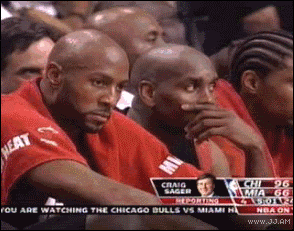nevetsov wrote:So there was a post, that Boston could use their $8.4m DPE on Monroe... Say they signed him for that, isn't that amount subtracted from our cap? I could be wrong, but I seem to recall the buyout first reduces our hit down to the buyout amount, and then any further signing over and above the buyout amount saving further reduces our cap?
Eg let's say Monroe is bought out for $15m, that's what he gets from us/MIL this season, so if he doesn't play at all, he takes a loss of $2.8m.
However, another team like BOS could sign him for $8.4m, meaning that he'll get around $4m from them for the remainder of the season, so that would make up the amount lost in the buyout and give him an additional $1.2m.
Monroe would add $8.4m to Boston's cap hit under the exception, and PHX's cap amount for Monroe would reduce from $17.8m to $9.4m.
This would put us well under the cap, to the point we could absorb a big contract into capspace anyway. Therefore, keeping Monroe's expiring isn't even necessary to make a big trade...?
Can someone confirm?
Not the way it works. There is a date after the trade deadline (I don't remember what it is) where the NBA freezes the salaries on each team's books and that number is used to compute tax issues.
When a team buys out a player for less than the contract amount, the team's ultimate figure for salary cap purposes becomes what the team is actually obligated to pay. This is the important concept. Forget Set offs they are a different concept, which come into place after the end of the season.
For example, the Suns owed Monroe $18M. He was in the last year of the contract being bought out. The Suns have already paid him about $65% of his salary for the year or about $10.5M. Their cap number for him will be at least that. Assume for the moment that the buyout was for $3M, the Suns cap number will then be $13.5M and the Suns have a $4.5M in cap space right now. The Suns will have to add a player and the number will drop by the cost of the player. If the Suns could only negotiate a $1M discount then his cap number would drop to $17M. If the Suns simply waive him, they are on the hook for all of the salary as it is guaranteed.
As for a setoff, it can be in play after the end of the season or not. It is negotiable. A set off has no immediate effect on the cap because of a buyout transaction. It works like this. If the player and team negotiate away the setoff, the buyout transaction will be complete at the time it is executed. If they don't, the team could ultimately recover some of its buyout money if a player signs with another team. It happens after the season is over and if it occurs, the team gets cash back in the amount of the set off and a retroactive credit as to the cap charge for the player. This retroactive credit have a bigger effect if the team is a taxpayer or on the cusp. For the Suns, the only thing they would get is cash because they are under the cap.
Going back to the example; if Monroe takes a $3M buyout and setoff is negotiated away, the Suns Cap number for him becomes $15M and they are about $12M under the cap, there would be no post-season credits or cash coming back. If the setoff was still in play, the cap charge would still be $15M, but if he signs with Boston for $8M, the Suns would get a portion of the $3M back after the season and Monroe's cap charge would be adjusted by the amount of the setoff. A decreased cap charge to the Suns from a setoff does nothing except make the Suns a little further under the salary cap.
I hope this is clear. There is an immediate cap benefit, but it is limited by the amount already paid plus the buyout amount.





















